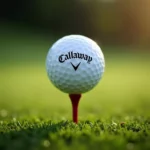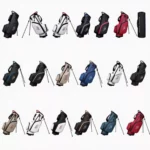Choosing the right golf ball can significantly impact your game. With countless options available, selecting the perfect one might seem overwhelming. This guide will help you navigate through the choices to find the best golf ball for your playing style.
Understanding Golf Balls
Golf balls come in various types and constructions, designed to cater to different skill levels and playing styles. Before selecting a golf ball, it’s essential to understand their characteristics:
Types of Golf Balls
-
Two-Piece Golf Balls
- Construction: A solid core with a durable outer cover.
- Ideal For: Beginners and amateur players focusing on distance and durability.
- Benefits: More distance and better durability at a lower price point.
-
Three-Piece Golf Balls
- Construction: A core, an inner layer, and a cover.
- Ideal For: Intermediate players looking for a balance of distance and spin.
- Benefits: Enhanced control and feel compared to two-piece balls.
-
Four-Piece Golf Balls
- Construction: A complex structure with multiple layers.
- Ideal For: Advanced players seeking maximum spin and control.
- Benefits: Greater feel around the greens and improved performance on various shots.
Key Factors to Consider
When choosing a golf ball, consider the following factors:
- Swing Speed: Your swing speed plays a crucial role in ball selection. High swing speeds typically benefit from softer compression balls, while slower swing speeds may need firmer balls for optimal distance.
- Spin Rate: If you need more spin for better control around the greens, opt for a multi-layer ball. A lower spin rate is better for distance.
- Feel: The feel of the ball is essential for short game performance. Softer balls provide a better feel, while firmer balls may offer more distance.
- Price: Remember that premium golf balls can be pricey. Decide on a budget that suits your needs without compromising on quality.
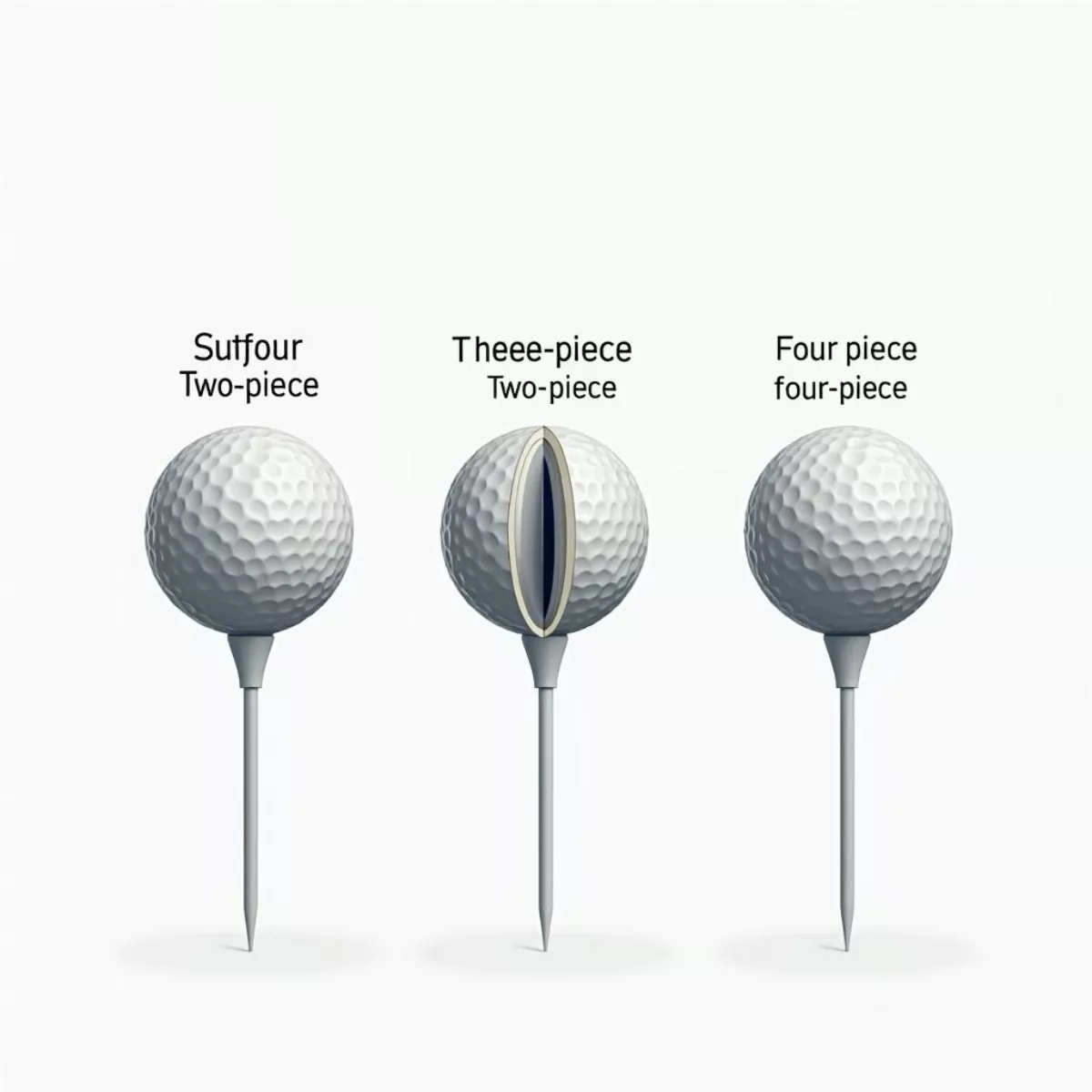 Different Golf Ball Types
Different Golf Ball Types
Popular Golf Balls on the Market
Here’s a table of some of the most popular golf balls along with their characteristics:
| Golf Ball | Type | Spin | Compression | Best For |
|---|---|---|---|---|
| Titleist Pro V1 | Four-Piece | High (Control) | Low | Advanced players |
| Callaway Chrome Soft | Three-Piece | Moderate | Medium | Intermediate players |
| Srixon Q-Star | Two-Piece | Low | High | Beginners |
| TaylorMade TP5 | Five-Piece | High | Low | Low handicappers |
| Bridgestone e6 | Two-Piece | Low | Medium | Distance-focused |
Tips for Finding Your Ideal Golf Ball
- Get Fitted: Consider visiting a golf fitting expert who can analyze your swing and recommend the best ball for your style.
- Experiment: Don’t hesitate to try different brands and types. Purchase a sleeve of each to see how they perform for you.
- Seek Feedback: Play with friends or ask for advice from your local pro. Their experiences can provide valuable insights.
- Pay Attention to Performance: Keep track of how each ball performs in terms of distance, spin, and feel.
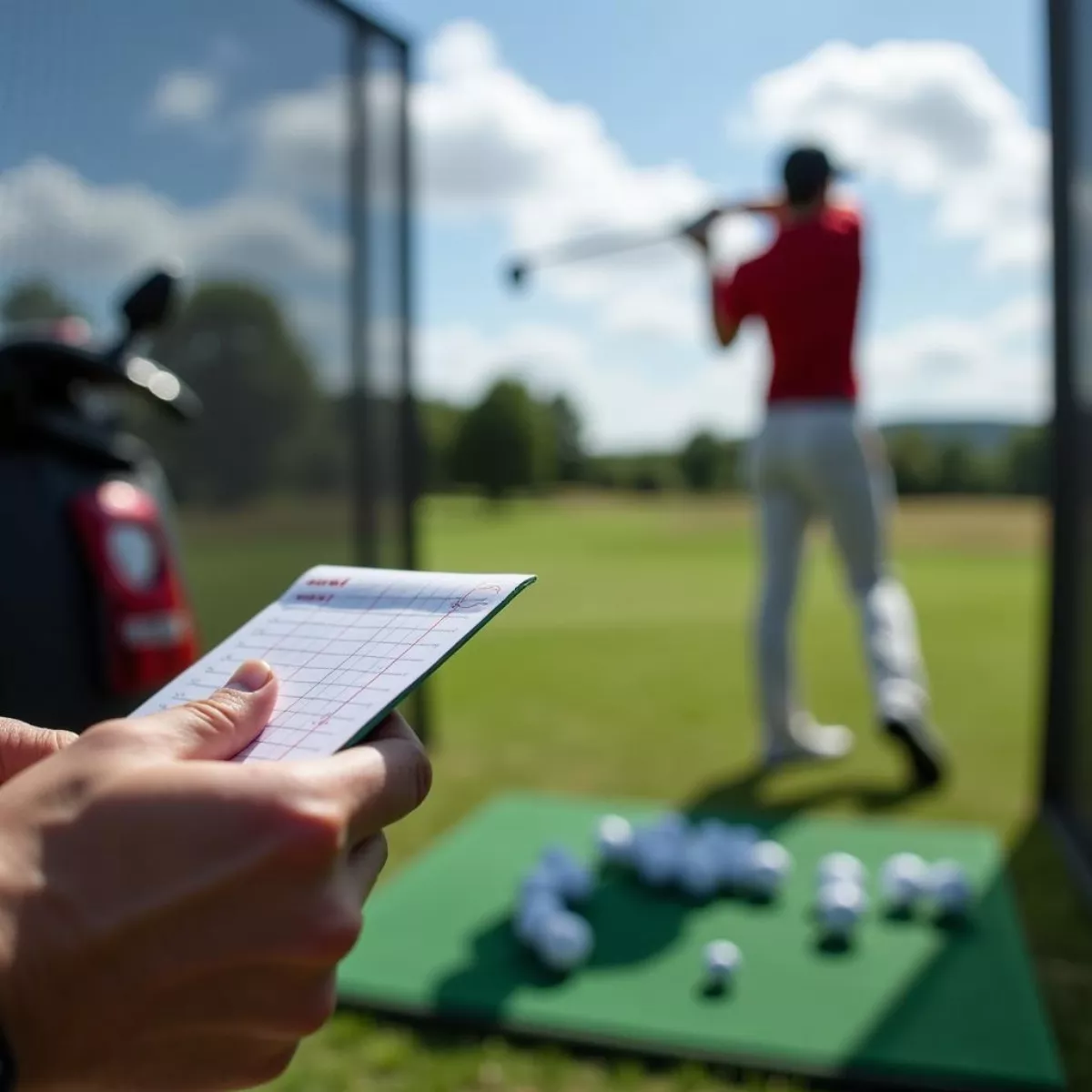 Golfer Experimenting with Different Golf Balls
Golfer Experimenting with Different Golf Balls
The Psychology of Golf Ball Selection
The right golf ball does more than improve your performance. It’s about confidence and comfort on the course. Many golfers develop a “brand loyalty,” often sticking with a ball they trust. This can lead to better results simply because the player feels good about their equipment.
Quotes from Professional Golfers
- Tiger Woods once said, “I just try to do the best I can with the equipment I have. If it isn’t working, it’s time to change.”
- Phil Mickelson emphasized the importance of feel, noting, “The ball you choose can make a significant difference in your short game.”
Frequently Asked Questions (FAQ)
1. Do golf balls expire?
Yes, the materials in golf balls can degrade over time. It’s best to use newer balls for optimal performance.
2. Can I mix different golf ball brands during a game?
Technically yes, but it can affect performance if the balls have vastly different characteristics.
3. What’s the difference between a soft and hard golf ball?
Soft balls compress more upon impact, resulting in increased feel, while hard balls tend to travel farther.
4. How often should I change my golf balls?
Every few rounds or whenever you notice significant wear and tear.
5. Does color matter in golf balls?
The color of a golf ball is largely a matter of personal preference, with some golfers finding colored balls easier to spot.
6. Are expensive golf balls always better?
Not necessarily. While premium balls have advanced features, the best ball for you depends on your skill level and playing style.
7. What are the best golf balls for beginners?
Two-piece balls or those designed specifically for beginners offer durability and distance at a reasonable price.
8. Can temperature affect golf ball performance?
Yes, colder temperatures can cause balls to become less pliable, affecting distance and feel.
9. Is it worth trying different golf ball brands?
Absolutely! Different brands have varying technology and feel, so experimenting can help you find the best fit.
10. Can I use a golf ball for practice that I typically use in games?
Yes, but it’s often better to use cheaper or lower-spin balls for practice to extend the life of your higher-performance balls for competition.
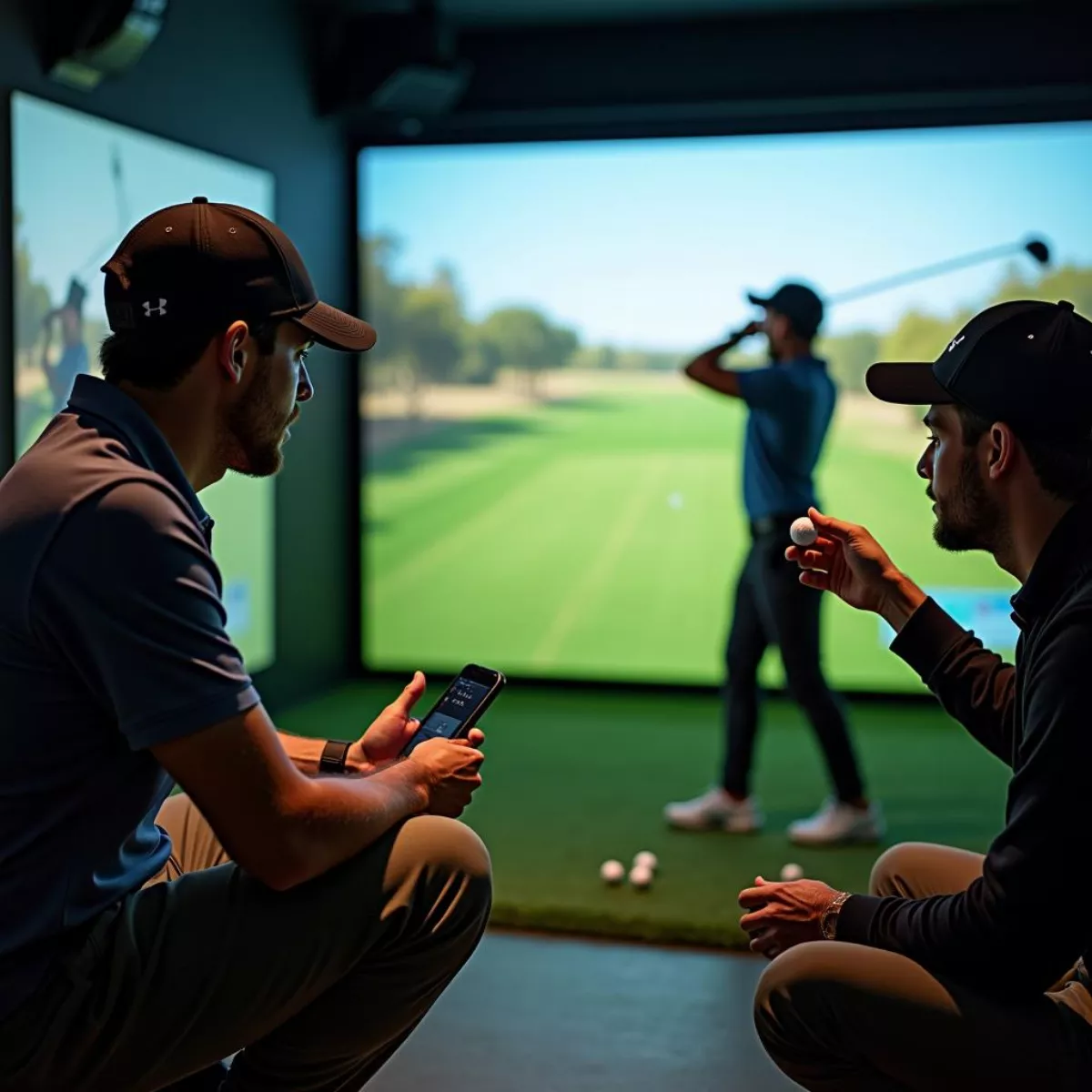 Golf Ball Fitting Session
Golf Ball Fitting Session
Key Takeaways
- Understand the types of golf balls: two-piece for beginners, three-piece for intermediates, and more for advanced players.
- Consider factors like swing speed, spin rate, and feel when selecting your ball.
- Experiment with different brands to determine what works best for you.
- Get fitted if possible; it can save you time and money in the long run.
- Pay attention to performance, tracking how different balls affect your game.
Selecting the right golf ball can enhance your game significantly. By understanding your needs and the options available, you’ll find the perfect fit!
For more tips on improving your golf game, check out our articles on improving your swing technique, best golf clubs for beginners, and how to choose the right golf shoes. Happy golfing!
